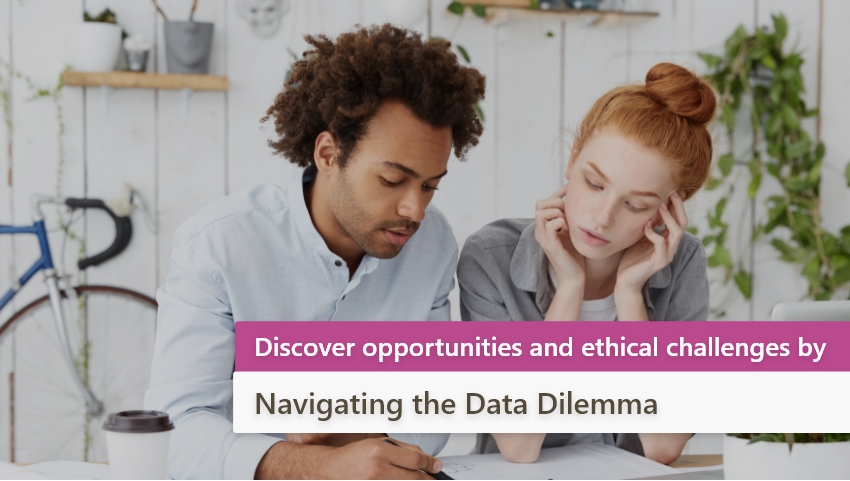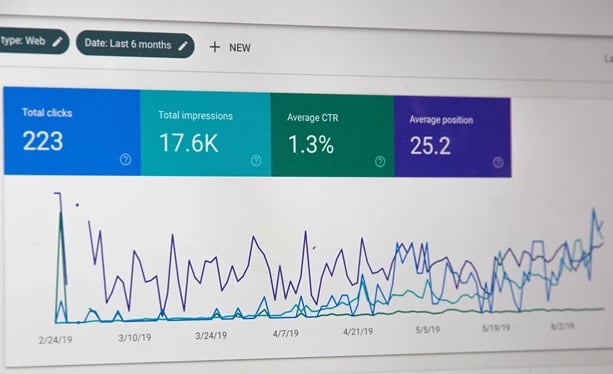Five Examples of Data-Driven Decisions in Business
14 min read
Time tracking
Build your perfect data foundation for spotless invoicing and deep business insights with easy time tracking.
Project management
Be a world champion project manager. Keep your projects on track - and profitable.
Resource management
Efficiently staff projects and run a predictable business with confidence.
Insights & Reporting
Get smarter - faster - to make clever decisions for long-term growth impact.
Project accounting & Invoicing
Invoice everything - fast and accurate - while staying on top of project finances.
Staff & Salary
Give accountants and HR an intelligent tool to eliminate draining administration.
Financial Systems
TimeLog offers standard integrations for all your favourite financial systems. Save time and reduce manual tasks.
Payroll Solutions
TimeLog offers standard integrations for multiple payroll solutions. Get easy salary administration and only enter payroll information once.
Add-ons
Track time automatically via Outlook, use gamification or find another add-on that can support your business.
Multiple Legal Entities
You can create synergy between your departments and across borders and offices with the Multiple Legal Entities module from TimeLog.
Business Intelligence
Utilise the insights you get from TimeLog to the fullest. Our system is ready to integrate with multiple BI solutions.
Partner Integrations
TimeLog PSA is part of a large ecosystem. Get an overview of all the partner integrations in the TimeLog family.
Economy department
Save 1-2 days a month on your invoicing process.
Project teams
From planning to execution and evaluation. Robust tools for every project manager.
Management teams
Create a performance-driven culture with solid reporting capabilities.
Large enterprises
Enhance operations and performance across entities, countries and departments.
NGOs and non-profit organisations
Simplify internal processes, spend less time on administration, and get documentation in place - at a discounted rate.
Blog
Get inspired to run an even better business with articles, guides and analyses.
Guides, podcasts and webinars
Get access to templates, guides and webinars that help and inspire you.
Help Center
Looking for help material and user guides to the TimeLog system? Look no further. Find all the help you need now.
Get a single source of truth
Discover how companies maintain a single source of truth across borders, departments, and currencies.
Get integrated
Discover the advantages customers gain from utilising our integrations and API.
Reporting in real-time
Explore how others leverage reporting to optimise their processes and make informed decisions.
Get started with resource planning
Discover how other companies thoroughly grasp their resources and enhance their ability to predict future trends.
Improved project financials
This is how the efficient financial toolbox from TimeLog helps project managers and CFOs improve their project financials.
Faster invoicing
Discover how other companies have slashed the time spent on invoicing by 75% - and uncover how you can achieve the same efficiency.
The Story of TimeLog
Get insights on TimeLog and how we can help you grow and evolve your business.
Employees
See who shows up every day to deliver the best PSA solution.
Career
What's life like at TimeLog? Are we hiring? Get the answer here.
Partner
Create even more value for your customers, as well as ours, as a TimeLog Partner.
Premium Service
Online Help Center, tailored onboarding and support from Day 1.
Corporate Social Responsibility
We work to ensure a positive impact on planet, people and businesses.
Security and GDPR
Learn more about how we work to keep your data safe and provide maximum security.
6 min read
Explore the data dilemma in the business landscape. Discover opportunities and ethical challenges, and learn how you can navigate the future of data for success.

We’re stating the obvious when we say, data is a powerful driver of growth, innovation, and decision-making in today's rapidly evolving business landscape.
Data, as we know it, has transformed from being a byproduct of business operations to a strategic asset that fuels business growth and enables organisations to make informed decisions — when used correctly.
Having access to data means businesses now have even more opportunities to gain deep insights into market trends, customer preferences, and operational efficiencies.
But it’s not all rainbows and unicorns.
Access to data has its dark side.
As businesses increasingly rely on data to gain a competitive edge, they also face a significant challenge known as the “data dilemma.”
In this article, we’ll explore the multifaceted aspects of the data dilemma in the business landscape, the challenges surrounding data, the impact on business operations, and ethical considerations for successfully navigating this complex landscape.
Data dilemma refers to the complex web of ethical considerations and practical challenges that arise from collecting, managing, and utilising vast amounts of data.
It encompasses a range of issues, including:
The significance of the data dilemma in today's business landscape cannot be overstated.
It forces businesses to strike a delicate balance between leveraging data to drive insights and respecting the rights and expectations of individuals whose data is collected.
Failure to navigate the data dilemma effectively can lead to reputational damage, legal repercussions, and erosion of customer trust.
For some, these repercussions can be irreparably costly.

You’ve probably seen the way words like ‘data scientist’, ‘data-driven’, ‘data dashboard’, etc. peppering the business world. Is it truly another buzzword that is enjoying it’s spotlight?
Yes, and no.
Data has become an indispensable tool for informed decision-making for many B2B businesses. Through collecting and analysing vast amounts of data, businesses can make data-backed decisions that reduce uncertainty, mitigate risks, and identify growth opportunities.
But, if you truly think about it, our B2C counterparts have been way ahead of us in the way they utilise data for decades. The B2B sphere is just now catching up to it.
In fiercely competitive fields, businesses are now leveraging data to reimagine traditional processes, create new revenue streams, and enhance customer experiences such as:
Data-driven business models have the potential to disrupt industries and create new market leaders because they measure processes and experiences numerically — it comes from the idea, you can’t improve what you can’t measure.
By the sound of it, data is a wonderful wealth to access.
The question is: How much data is enough data?
A dataset is meaningless until we give it meaning.
And that is where the data dilemma sets in. Decision-makers are often left wondering if they’re crossing an ethical line. It’s a hard place to be because data dilemmas profoundly impact various aspects of business operations.
Success in navigating the data dilemma in the business landscape requires a thoughtful and strategic approach to minimise human errors that are prone to happen.
Businesses using data as their driver of growth must address the ethical concerns, regulatory requirements, and operational challenges associated with data collection, management, and utilisation.
Amidst all that, many businesses also need to grapple with resource allocation and return on investment while balancing the costs of data collection, storage, and analysis with the value it brings.
It’s a lot.
And where do we even begin?
Let’s start by addressing the biggest challenges around data.
The use of data in the business landscape brings forth a multitude of challenges and ethical concerns — from data privacy and security to issues of ownership and bias.
The only way to ensure responsible and sustainable data practices is to acknowledge the data dilemma and learn how to navigate these complexities carefully and respectfully.
To address the data dilemma effectively, you can adopt several ethical considerations that promote responsible data management practices.
Data privacy and security refer to protecting and safeguarding personal information against unauthorised access or breaches which pose significant challenges and ethical concerns in the realm of data.
Data privacy and security are crucial to:
Data privacy and security are vital to maintaining ethical integrity, regulatory compliance, and protecting the reputation and trust of individuals and organisations.
Ethical considerations include:
Read the article: Five Examples of Data-Driven Decisions in Business
Data ownership refers to the legal rights and control over data, determining who can access, use, and monetise it. Data control involves the ability to manage and govern data.
These two go hand-in-hand and are critical components to take into consideration as they define individual rights, responsibilities, and accountability in ensuring:
The issues around data ownership and control typically include who has the right to collect, store, and utilise data and how data is shared, monetised, or used for targeted advertising.
Ethical considerations include:

Bias and discrimination in data refer to unfair or discriminatory outcomes or decisions resulting from biased data or algorithms.
It occurs when data collection, analysis, or interpretation reflects societal biases, leading to unequal treatment or opportunities for specific individuals or groups.
Addressing bias and discrimination in data is crucial as it promotes:
Acknowledging data bias ensures that data-driven systems do not perpetuate or amplify existing biases or contribute to discriminatory practices, fostering ethical and equitable outcomes.
Ethical considerations include:
The future of data in the business landscape holds immense promises and presents new challenges that businesses must navigate.
Data analytics and artificial intelligence (AI) advancements are poised to revolutionise how businesses collect, analyse, and derive insights from data. These technologies enable us to uncover valuable patterns, trends, and predictive models that can inform strategic decision-making, enhance operational efficiencies, and drive innovation.
Emerging technologies such as machine learning, natural language processing, and robotic process automation will further augment the power of data analytics, enabling us to extract deeper insights, automate processes, and improve customer experiences.
The ability to leverage real-time data streams, sensor data, and unstructured data sources also expands the scope and depth of data analysis, providing organisations with a comprehensive understanding of their operations and customer preferences.
However, along with these advancements, new data challenges emerge.
The sheer volume, variety, and velocity of data generated pose significant hurdles for organisations seeking to extract meaningful insights.
Ensuring data quality, managing data privacy and security, and addressing ethical concerns surrounding data use will become increasingly complex.
In this landscape, businesses must prioritise ethical considerations, transparency, and accountability in their data practices. This involves establishing robust data governance frameworks, implementing privacy-by-design principles, and adopting ethical AI practices.
It also requires fostering a data-driven decision-making culture that values responsible data use, diversity, and inclusivity in data collection and analysis and actively addresses biases and discrimination.
Furthermore, it also means businesses must be agile and adaptive to evolving data regulations and societal expectations. Compliance with data protection laws, such as the General Data Protection Regulation (GDPR), is essential to build customer and stakeholder trust.
While the future of data holds immense potential to drive innovation, competitiveness, and customer-centricity, it also requires a proactive and responsible approach to harness its benefits fully.
Businesses can position themselves at the forefront of the data-driven revolution by embracing advancements in data analytics, AI, and emerging technologies while actively addressing the associated challenges and shaping a responsible data culture — together.

The future of data is brimming with possibilities for innovation, competitiveness, and customer-centricity, waiting to be unlocked. In today's dynamic business landscape, embracing a responsible data revolution is crucial for organisations to harness the power of data while guaranteeing:
As data regulations and societal expectations evolve, businesses must remain adaptable and compliant through transparent data practices. Only then can we unleash the transformative potential of data, shaping a brighter future for all stakeholders.

1 min read
 Read more
Read more

11 min read